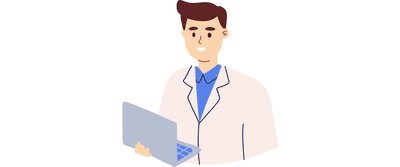![Healthy Matters]() Pharmacist Tips | Dosages | Side effects
Pharmacist Tips | Dosages | Side effects![Healthy Matters]() Nutritionist Tips | Facts | Precautions
Nutritionist Tips | Facts | Precautions![Healthy Matters]() Practitioner Tips | Dosages | Side effects
Practitioner Tips | Dosages | Side effects![Healthy Matters]()
![Healthy Matters]()

Hernia: A Bulge on the Body
6 min read

A hernia happens when an internal organ pushes through a weak spot in the surrounding muscle or tissue. There are many types of hernia, such as inguinal hernia, hiatal hernia, umbilical hernia and femoral hernia. Most hernias don’t go away on their own, and they can sometimes lead to serious complications if untreated.

Hernia meaning: What is a hernia? Types of hernia?
The peritoneum is the membrane that lines the abdominal cavity and encloses most of the internal organs in the abdomen to protect them. A hernia is a bulge that is resulted from an organ (e.g. stomach, bowel) or peritoneum protruding through a weakening spot of the abdominal wall.
There are many types of hernia, depending on where the hernia is (e.g. groin, abdominal, diaphragm). Listed below are some types of hernia:
- Inguinal hernia: This is the most common type of hernia, in which fatty tissue or part of the intestine pushes through the abdominal muscles into the inguinal canal. In males, the inguinal canal is where the spermatic cord passes to the scrotum, whereas in females, the inguinal canal carries a ligament that helps hold the uterus in place. Inguinal hernia is more common in males because the inguinal canal sometimes doesn’t close properly as supposed to after the testicles descend at birth, causing a weak spot in this area.
- Umbilical hernia and Paraumbilical hernia: It happens when fatty tissue or part of the intestine bulges through the abdominal wall near the belly button. An umbilical hernia, which mostly affects newborns, presents as a bulge at the belly button usually obvious when crying. It is typically not dangerous and goes away as the baby grows. Surgery is only considered when the hernia persists beyond the age of 3-4 years. A paraumbilical hernia is a bulge above or below the belly button affecting adults. It is usually caused by obesity or repeated strain on the belly.
- Femoral hernia: Femoral hernia occurs when fatty tissue or part of the intestine bulges into a weak spot at the top of the inner thigh known as the femoral canal. Unlike an inguinal hernia which points to the groin, a femoral hernia points down the leg and is a less common type of hernia. It mainly affects older females.
- Epigastric hernia: An epigastric hernia happens when fatty tissue passes between the belly button and the lower part of the sternum.
- Spigelian hernia: Spigelian hernia is a rare type of hernia which forms through the lateral edge of the rectus abdominis muscle.
- Incisional hernia: Incisional hernia happens when tissues protrude from the scar or weak spot of the abdominal muscles at the site of the surgical incision.
- Parastomal hernia: Parastomal hernia is a type of incisional hernia happening when abdominal content passes through a stoma, which is an opening on the abdomen for waste to leave your body, particularly if you can't have a normal bowel movement.
Other types of hernia that occur inside the peritoneum without visible external bulge include:
- Hiatal hernia: Hiatal hernias occur when the upper part of the stomach pushes upward through an opening in the diaphragm (hiatus) into the chest cavity. It is a common diaphragmatic hernia in which a small hiatal hernia does not cause any symptoms most of the time.
- Congenital diaphragmatic hernia: It occurs when the diaphragm does not close properly during prenatal development. The opening in the diaphragm allows abdominal contents to move into the chest, affecting the development of the lungs.
- Obturator hernia: Obturator hernia is a very rare type of hernia in which intestine tissues pass through an opening in the pelvis (obturator canal). It usually presents with symptoms of intestinal obstruction in older female patients.
Signs and Symptoms of Hernia
Signs and symptoms of hernia depend on the types of hernia you have. The most common sign of an abdominal hernia (e.g. inguinal hernia and femoral hernia) is the development of a noticeable lump or bulge. You can experience signs and symptoms like:
- A bulge in the affected area: This bulge or lump can sometimes be pushed back in or can disappear when you are lying down. The bulge becomes more obvious or reappears when you are upright, coughing, or straining.
- A burning or aching sensation at the bulge
- Discomfort or pain in the area around the lump
- Pain that increases with activity, such as bending over and coughing
- A feeling of pressure in the affected area
If a hernia is left untreated, the hernia can become “strangulated”, which is a serious complication. You should seek medical attention right away if you experience the following signs and symptoms:
- Color changes (red, purple or dark) in the skin near the hernia
- The bulge cannot be pushed back into the abdomen
- Sudden and severe pain
- Nausea and vomiting
- Constipation
- Fever
Causes and Risk factors of Hernia
A hernia happens when an increase in pressure in the abdomen pushes an organ or tissue through the opening or weakness of muscle. There are many reasons for increased pressure or weakened muscles, in which different types of hernias have different causes and risk factors. For example, a hernia can be present at birth (e.g. umbilical hernia), while other hernias tend to develop later in life.
In fact, except for incisional hernia which is a complication of surgical procedure on the abdomen, there is no clear reason for the occurrence of hernias. But there are some common factors that possibly increase the risk of developing a hernia:
- Aging
- Obesity
- Pregnancy
- Personal or family history of hernia
- Straining on the toilet
- Constipation
- Lifting heavy objects
- Strenuous activity
- Physical exertion
- Tumors
- Ascites: Abnormal build-up of fluid in the abdomen.
- Chronic cough or COPD (Chronic Obstructive Pulmonary Diseases)
- Abdominal injuries or surgeries
- Smoking
Complications of Hernia
Most hernias do not go away on their own, except umbilical hernias in babies. Untreated hernia sometimes can grow and lead to serious complications like:
- Incarcerated hernia: An incarcerated hernia means the herniated tissue is trapped in the abdominal wall. This incarceration can lead to bowel obstruction, causing pain, nausea, vomiting, and abdominal swelling.
- Strangulation: If an incarcerated hernia persists, it can cut off the blood supply to that part of the intestine, leading to tissue death. It is a life-threatening condition that requires emergency surgery.
Diagnosis of Hernia
In general, a physical examination is good enough to diagnose a hernia based on the recognizable bulge located on the body surface. Your doctor may feel the size of the bulge and see whether it can be pushed back into the abdomen. For other hernias that do not have obvious signs and symptoms, additional tests might be performed to confirm the diagnosis of hernia:
- Abdominal ultrasound: If the hernia is not clinically apparent (e.g. femoral hernia), an abdominal ultrasound test can guide an accurate diagnosis.
- Other imaging tests: X-rays or CT scan is sometimes used to check for bowel obstruction if incarceration or strangulation is suspected. Sometimes hernias can be incidental findings found on CT or MRI scans that are arranged for other purposes.
Treatments of Hernia: Hernia surgery
Though surgery is the only treatment option for hernia, not everyone with a hernia is suitable and necessary to be operated on. Your doctor will determine whether hernia repair is necessary, depending on the type of hernia, risks of complications, your health condition, and severity of symptoms, etc. In general, types of hernia surgery include:
- Open surgery: Your surgeon makes an incision near the site of the hernia. The protruding tissue is then pushed back into the abdominal and the weakened area is sewn and reinforced by synthetic mesh.
- Laparoscopy: It is a minimally invasive procedure that provides a faster recovery time than open surgery. Your surgeon makes several small incisions and a special instrument with a camera (laparoscope) will be inserted to repair the hernia using synthetic mesh.
Sometimes, your doctor may just closely monitor your hernia before any intervention until complications develop. This is called watchful waiting.
Prevention of Hernia
It is sometimes hard to prevent a hernia from developing, but the risk of certain types of hernia can be reduced by avoiding an increase in abdominal pressure. Other than congenital hernias, the risk of hernia can be minimized through:
- Maintain a healthy body weight
- Eat a healthy diet (foods rich in fiber) to prevent constipation
- Exercise regularly
- Avoid smoking
- Avoid straining while having a bowel movement
- Avoid lifting heavy objects
- See a doctor when you have a persistent cough
Yes. Hernia can be pushed back in or can disappear when you are lying down, and most patients experience this before they seek medical attention. If your bulge cannot be pushed back into the abdomen, or if there is difficulty or even pain when you reduce the hernia, you should seek medical attention immediately as it may indicate the development of complications.
Most hernias do not go away on their own, except umbilical hernias in babies. The only treatment option for hernia is surgery, Untreated hernia sometimes can grow and lead to serious complications.
Though not all cases of hernia will necessarily get worse, surgery is advisable for some types of hernia (e.g. inguinal hernia). Untreated, herniated tissue can become trapped in the abdominal wall (incarceration), leading to bowel obstruction and strangulation. It is fatal and requires emergency surgery.
For inguinal hernia, the repair with mesh can be done by an open or laparoscopic approach. The latter causes less pain and provides a much faster recovery time compared to open surgery. For patients who are not suitable for laparoscopy or general anesthesia, or with very large inguinal hernia, open surgery with mesh repair is advised.
This article was medically reviewed by Dr. Kam Ming Ho Philip ��甘明豪醫生. Dr. Kam is a specialist in general surgery in Hong Kong who is currently practicing at the Edinburgh Orthopaedic Spine And Surgery Centre.
This article was independently written by Healthy Matters. It is informative only and not intended to be a substitute for professional medical advice, diagnosis or treatment. It should not be relied upon for specific medical advice.

Your health resource, made in Hong Kong
Healthy Matters is Hong Kong’s leading health resource. Our mission is to help you make better health decisions and take control of your health.
Our team of experts is committed to producing reliable health content that is accurate, engaging and relevant, to cover your health & wellness journey from prevention to treatment.
Whether you are looking for trusted information on health conditions, wellbeing or looking for the right doctor or service in Hong Kong, we’re here to help!
Your health matters. Begin your health journey with Healthy Matters today!


































